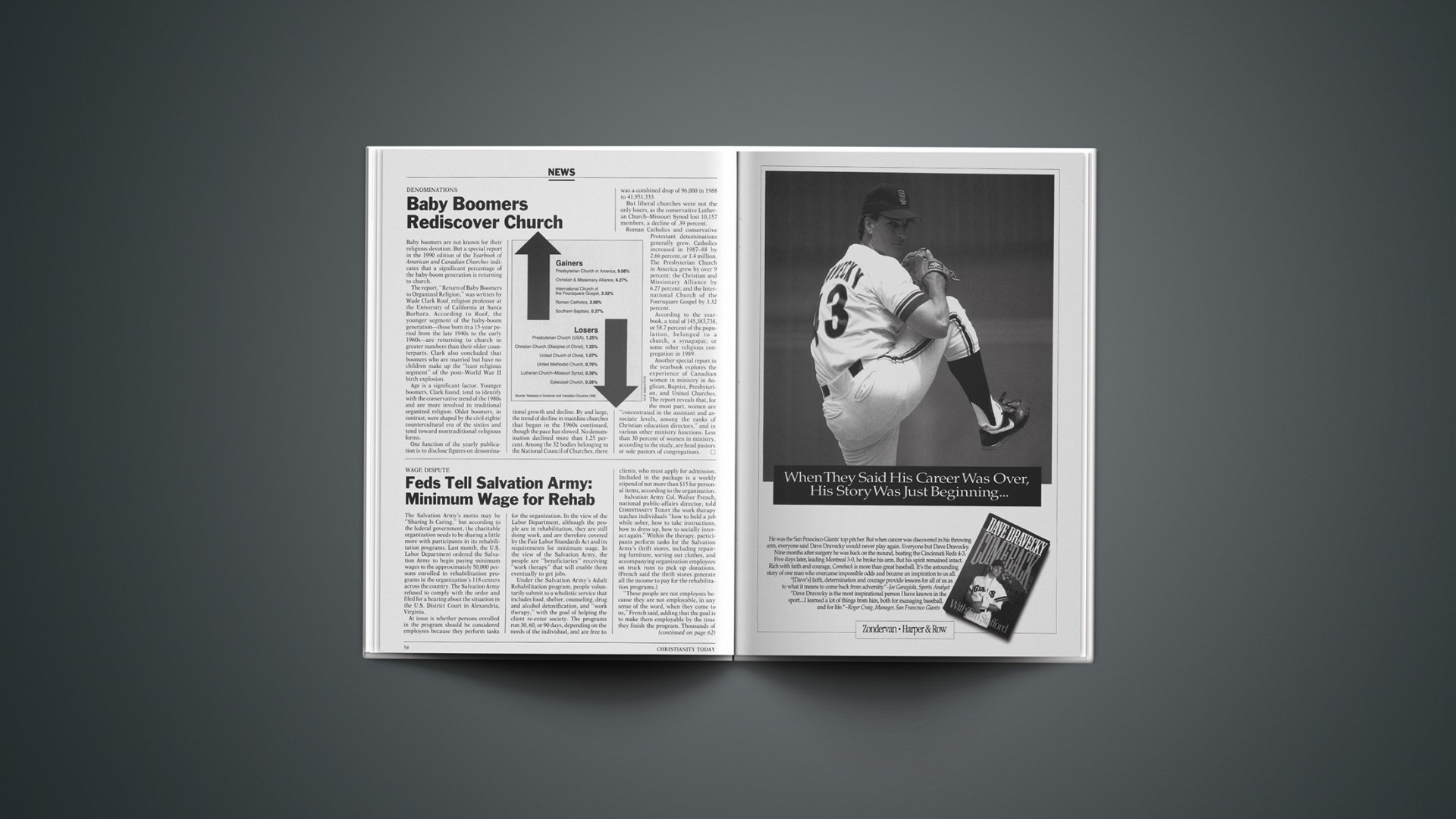Baby boomers are not known for their religious devotion. But a special report in the 1990 edition of the Yearbook of American and Canadian Churches indicates that a significant percentage of the baby-boom generation is returning to church.
The report, “Return of Baby Boomers to Organized Religion,” was written by Wade Clark Roof, religion professor at the University of California at Santa Barbara. According to Roof, the younger segment of the baby-boom generation—those born in a 15-year period from the late 1940s to the early 1960s—are returning to church in greater numbers than their older counterparts. Clark also concluded that boomers who are married but have no children make up the “least religious segment” of the post-World War II birth explosion.
Age is a significant factor. Younger boomers, Clark found, tend to identify with the conservative trend of the 1980s and are more involved in traditional organized religion. Older boomers, in contrast, were shaped by the civil-rights/countercultural era of the sixties and tend toward nontraditional religious forms.
One function of the yearly publication is to disclose figures on denominational growth and decline. By and large, the trend of decline in mainline churches that began in the 1960s continued, though the pace has slowed. No denomination declined more than 1.25 percent. Among the 32 bodies belonging to the National Council of Churches, there was a combined drop of 96,000 in 1988 to 41,951,333.
But liberal churches were not the only losers, as the conservative Lutheran Church-Missouri Synod lost 10,157 members, a decline of .39 percent.
Roman Catholics and conservative Protestant denominations generally grew. Catholics increased in 1987–88 by 2.66 percent, or 1.4 million. The Presbyterian Church in America grew by over 9 percent; the Christian and Missionary Alliance by 6.27 percent; and the International Church of the Foursquare Gospel by 3.32 percent.
According to the yearbook, a total of 145,383,738, or 58.7 percent of the population, belonged to a church, a synagogue, or some other religious congregation in 1989.
Another special report in the yearbook explores the experience of Canadian women in ministry in Anglican, Baptist, Presbyterian, and United Churches. The report reveals that, for the most part, women are “concentrated in the assistant and associate levels, among the ranks of Christian education directors,” and in various other ministry functions. Less than 30 percent of women in ministry, according to the study, are head pastors or sole pastors of congregations.










